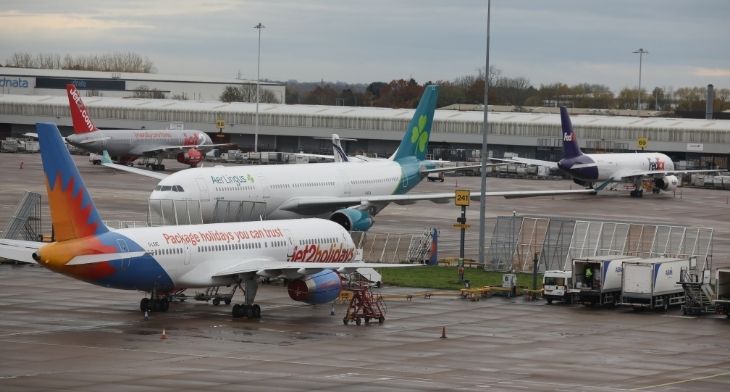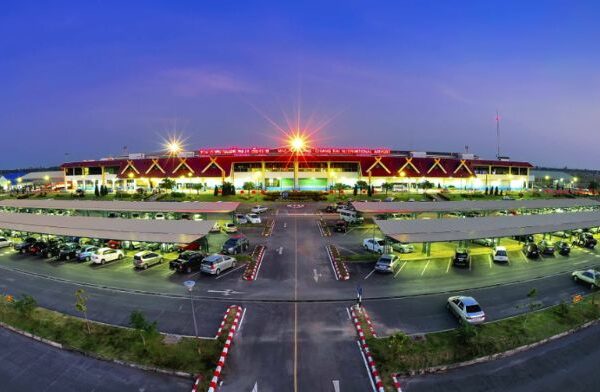


UK Airports’ pandemic revenue losses top £10bn according to a report by the Airport Operators Association (AOA).
The report, titled Reconnecting the UK: recovering aviation connectivity shows that 2021 was worse than 2020, with airports seeing the lowest passenger numbers since 1983. It also outlines the challenge ahead for the UK in recovering its pre-pandemic aviation connectivity, with airports at a competitive disadvantage as they seek to attract airlines back to flying routes from the UK. This is further compounded by airlines expecting to operate smaller fleets this summer, higher fuel prices and the rising cost of living.
As well as highlighting that UK airports lost £10bn in revenue since the first lockdown in March 2020 taking on more than £4bn in debt, figures in the report also reveal that passenger numbers in 2021 were down 12.7% on 2020 to 64.3m (1983: 61.1m), while European airports saw higher passenger numbers in 2021 than 2020. In Germany, Italy, Ireland and the US, airports got up to nearly eight times as much financial support as UK airports.
In addition tourism organisations across Europe are investing heavily in recovering pre-pandemic tourism numbers, while Visit Britain’s 2022-23 budget is as yet unconfirmed.
The AOA’s Reconnecting the UK report outlines the urgent need for the UK and devolved governments to set out a comprehensive aviation recovery plan, focused on the short term alongside the UK and Scottish Government’s planned longer-term aviation strategies. On behalf of its members the AOA is calling for such a recovery plan to include: A 12-month APD holiday to encourage airlines to put routes back into the UK; a route development support package to include funding airport charges on certain routes; increases in the UK’s tourism marketing budgets to match those of its competitors; the introduction of duty-free upon arrival stores like Norway, Switzerland and other countries already have and which the EU is considering at Calais to ensure the UK economy benefits from the recent increase to personal duty-free allowances.
Commenting, Airport Operators Association Chief Executive Karen Dee said that in the two years since the first lockdown began, “Airports have suffered huge revenue losses and had to take on significant amounts of debt to keep operations going. They come out of this pandemic in worse financial health than many of our European and US competitors, placing the UK at a disadvantage in recovering our pre-pandemic connectivity.
The UK and devolved governments should set out a comprehensive Aviation Recovery Package to boost the UK’s chances to make a success of the recovery. We will be competing fiercely with other countries for the return of airlines and routes. We cannot afford the UK to lag behind our global competitors.
“If government fails to step up to the plate, the impacts are clear: people and businesses who depend on aviation for their own success will carry the heaviest burden, particularly outside London and the South East of England. They will not be able to get their products and services to market easily, to bring tourists and business visitors to the UK or to invest in their local community.”
Baroness Ruby McGregor-Smith, AOA’s Chair added that “With our competitors investing heavily in their airports during the pandemic and for their recovery, the UK is at risk of being outcompeted. That is why an Aviation Recovery Package is crucial to maintaining the UK’s pre-pandemic global aviation standing and route network.”
She warned that the UK Government’s global Britain ambitions will not happen, “unless aviation can successfully recover and bring back the routes that businesses rely on for their economic success… Similarly the UK and devolved governments need to step up and do more to keep critical aviation skills in the UK.”





